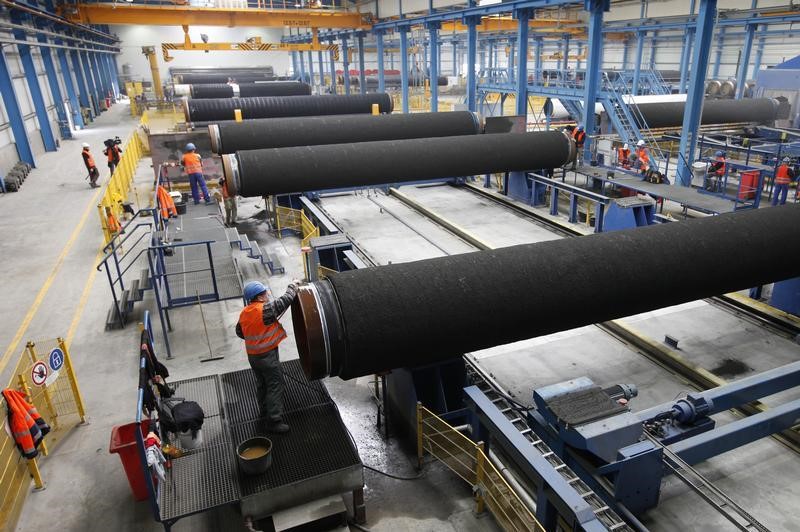This post was originally published on this site
https://i-invdn-com.investing.com/trkd-images/LYNXMPEJ1J078_L.jpg
LONDON (Reuters) – The pandemic and war in Ukraine highlighted weaknesses in commodity markets where a ‘significant’ concentration of firms, banks, exchanges and clearing houses threatens to transmit losses to the wider economy, the G20’s financial watchdog said on Monday.
The Financial Stability Board’s (FSB) deep dive into commodity markets came after regulators voiced concern that they were unable to get a full picture of a sprawling sector comprising on and off exchange derivatives trading, physical stocks, patchy data and producers spread across the world.
European natural gas and metals prices doubled while oil and wheat gained sharply after Russia’s invasion of Ukraine, causing a spike in cash or margin calls on related derivatives.
The FSB, which coordinates financial rules for G20 economies, said that forced governments to offer liquidity to some cash-strapped market participants.
The report noted, however, that there was no major market disruption – with the exception of London Metal Exchange (LME) nickel – and limited impact on the rest of the financial system.
But fallout from the surge in nickel prices echoed concerns over large, concentrated positions and opacity in commodities more generally.
The commodities market adapted to stress by switching to opaque over-the-counter (OTC) or off-exchange contracts where margin requirements are less strict, making ties between commodities and banks more complex, the report said.
The FSB said a small number of non-financial trading firms played an outsize role in trading.
“The juxtaposition of this concentration and interlinkages in the commodities sector – along with large and leveraged commodities traders, less standardised margining practices and opacity in OTC markets – could all come together to propagate losses,” the report said.
FSB Commodities Graphic 1 https://fingfx.thomsonreuters.com/gfx/mkt/lgvdknrmqpo/FSB%20Commodities%20Graphic%201.PNG
The FSB said vulnerabilities in commodities are similar to those in non-bank financial intermediaries as economies went into COVID-19 lockdowns, and are now being addressed.
“We will undertake work to enhance market participants’ liquidity preparedness for margin and collateral calls…and to identify data gaps in regulatory reporting,” FSB Chair and Dutch central bank chief Klaas Knot said.
FSB Commodities Graphic 2 https://fingfx.thomsonreuters.com/gfx/mkt/xmpjkrzgmvr/FSB%20Commodities%20Graphic%202.PNG

